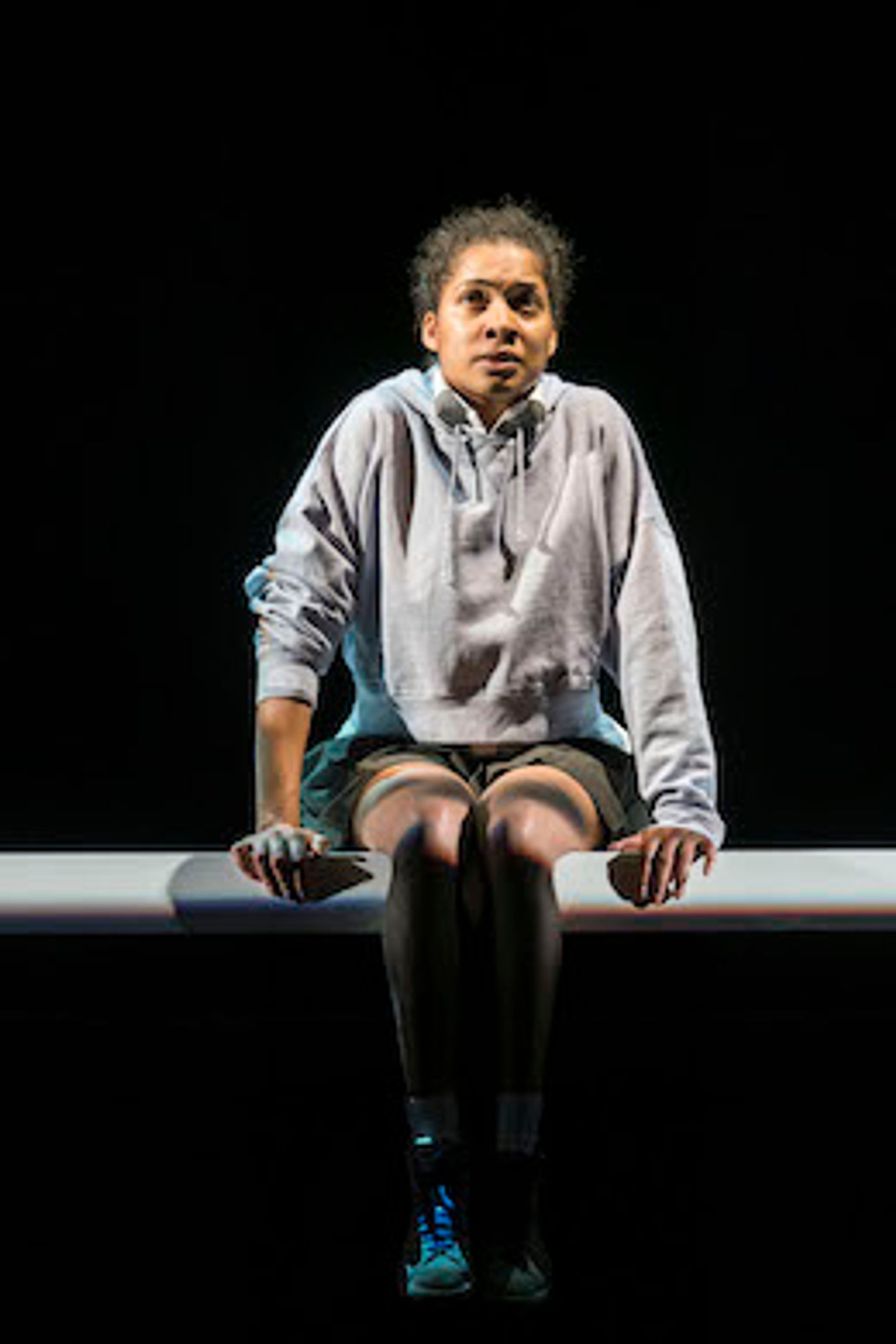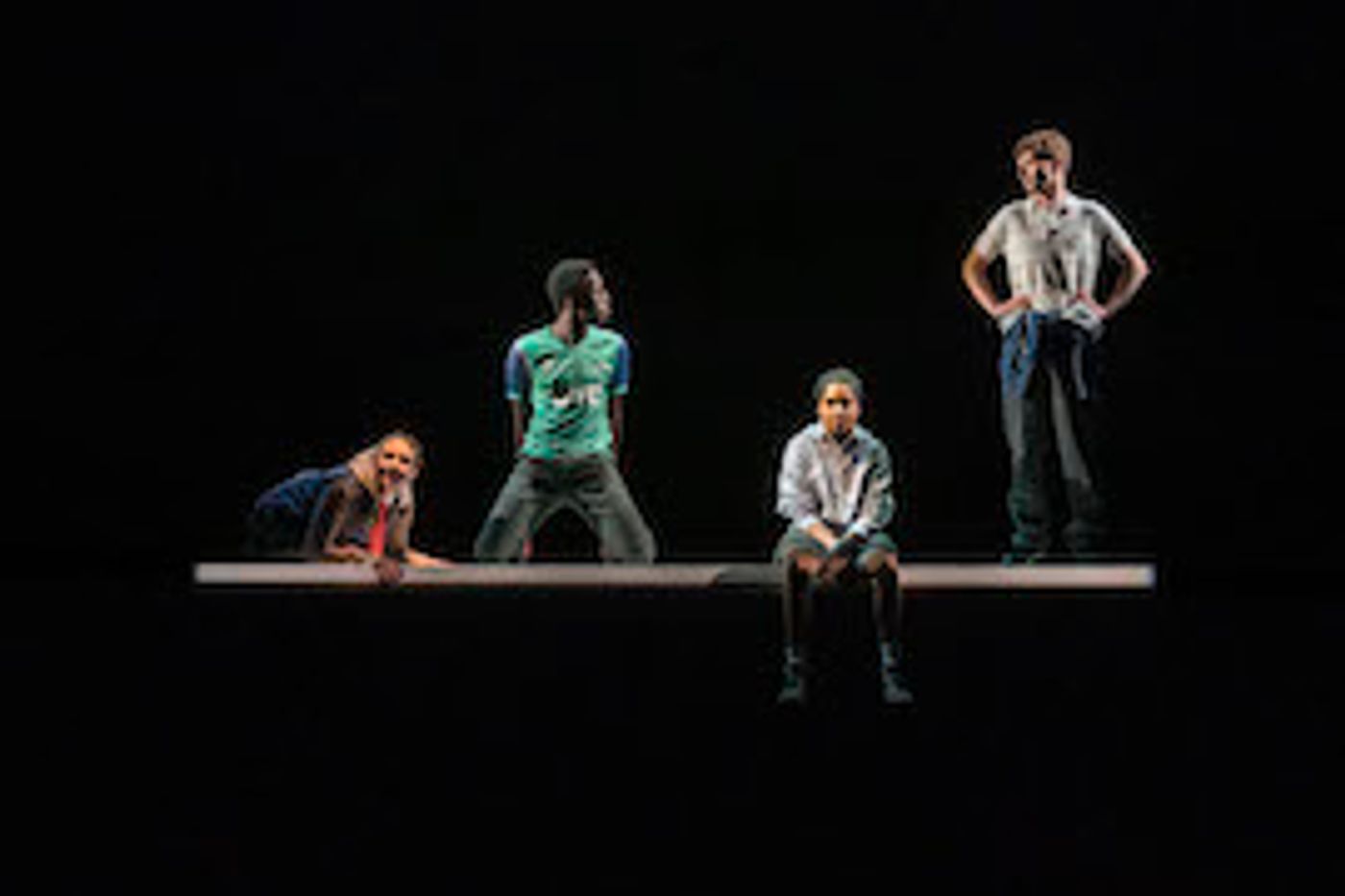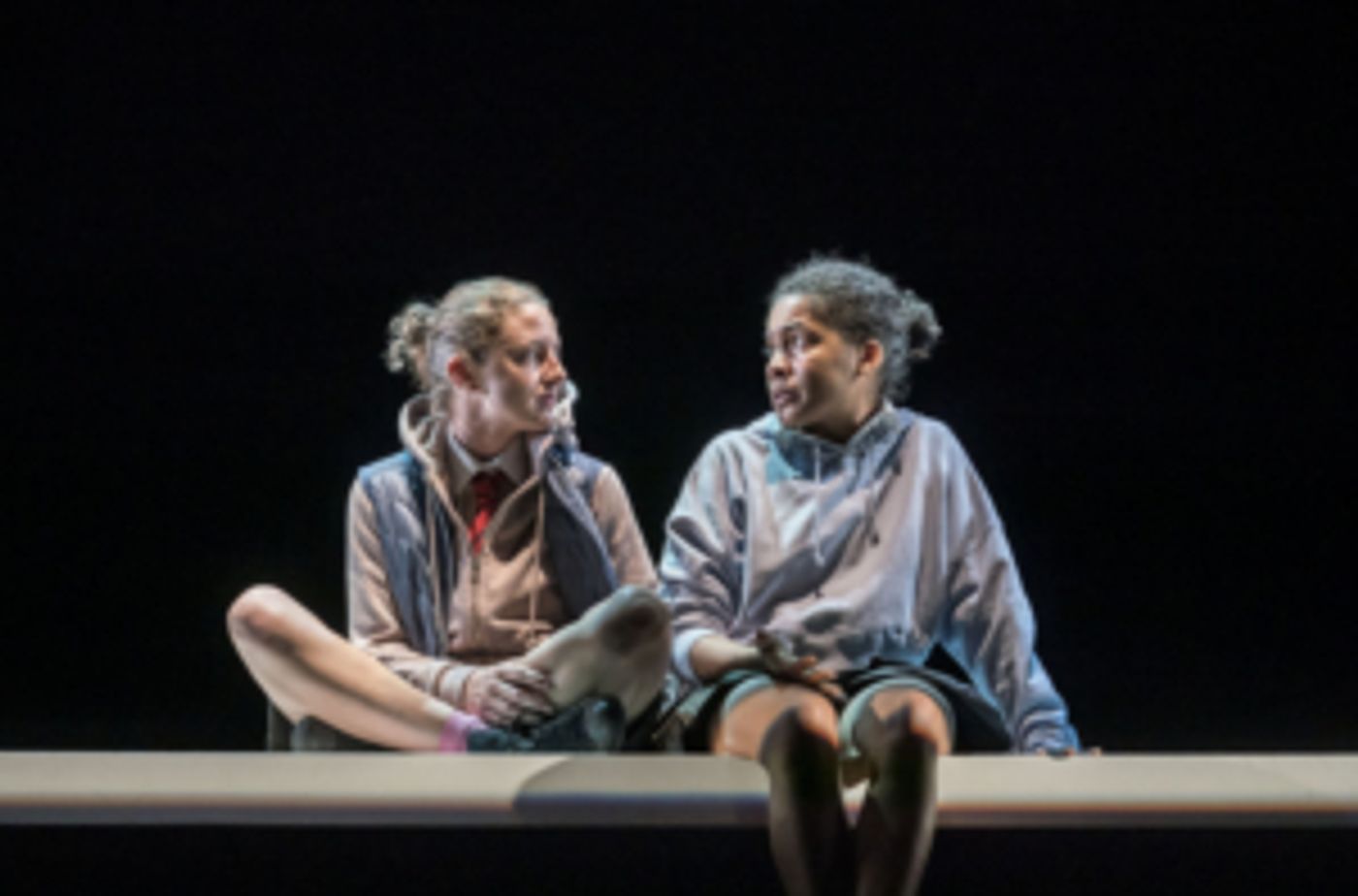Interview: Rebekah Murrell Talks GLASS at the Royal Court

Rebekah Murrell made her professional acting debut in Natasha Gordon's award-winning Nine Night, which opened at The National Theatre before transferring to Trafalgar Studios. Earlier this year, she followed that up with her directing debut: J'Ouvert at Theatre503.
She can now be seen performing in Glass at the Royal Court, one of four new plays written by Caryl Churchill and directed by James Macdonald. BroadwayWorld spoke with Rebekah about the rehearsal process, Churchill's work, and what changes she would like to see in the theatre industry.
What appeals about performing new work?
With new writing, it's exciting to see how it captures a moment. It was amazing that people could come up after seeing Nine Night and [point out] similarities between Aunt Maggie and members of their family. New writing allows us to interrogate most directly what it is to be alive today and to live in the world. You hope shows constantly are relevant, but there's something beautiful about the matchstick nature of theatre.
How much has Caryl Churchill been in the room, and have the pieces changed during rehearsals?
She's been in the rehearsals constantly. Her presence is amazing, and she is so astute with superb notes, but she hasn't changed anything. In Glass, nothing has changed. What's interesting about her work is that there's so much space: it's flexible. We might have to change how we perform it, but the writing is what it is.
What's surprised you during rehearsals?
Everything. I'm at the beginning of my career, and coming to the Royal Court is a dream come true. It wasn't until the read-through that we got to experience all the pieces, and they're so different and disconnected, but it's exciting to find the through-lines. I've never seen anything like this on this scale.
Your acting education was varied and informal - can you talk about the importance of programmes like those offered by The Actors Class to the industry?
From my experience, they're invaluable. We're at a point with theatre where we keep speaking about pushing the boundaries of the form and the types of audiences we can attract, and one major answer to this is the pathway into the industry. Within Glass, two of us went to drama school and two of us didn't. It's four actors with different styles and approaches - and that's so valuable.

Rebekah Murrel and Patrick
McNamee in Glass
A lot of people whose work I love have come from the National Youth Theatre, which gives you the experience of doing a professional production. These schemes allow you to understand how it can be as a career and they give you the relevant tools. You can always be learning. Mary [Doherty] at The Actors Class in particular teaches the practicalities of the industry, such as how to write to an agent or how to do an audition.
You made your directing debut with J'Ouvert at Theatre503 - how do you find shifting between acting and directing?
The investigation and interrogation, the processes of excavating what the play is trying to say, is the same. In my mind, I love how the two interplay - the thought processes feed each other. I'm definitely an actor's director. It feels useful to have both and they exist in similar places. The process of directing J'Ouvert earlier this year was bonkers, and I went from that into an acting job. It was interesting having the week of dramaturgical experimentation and then going on stage.
How do directors like James Macdonald and Roy Alexander Weise [director of Nine Night] inspire you?
Roy once described James's process to me as saying nothing and getting the absolute best out of everyone. It's true: he's so considered and I love working with him. It's a democratic space, and there's room for thought and chucking mad ideas out there if you want to. There's also a breathing space, and people are more deliberate with what they put out. It's so calm and it feels like he's got it under control. The way he negotiates the work with Caryl shows how they respect and emphasise one another's creativity.
Roy is the best guy ever and the nicest man in theatre. His room feels very reflective of him: there's joy, fun, laughter, intelligence and good work at the end. Roy is a great actor's director. I think he assisted James, which would make sense: they both share a sensitivity and willingness to allow the text to be what it is and to let the work take shape.
What truth does Glass aim to reveal to audiences?
I'm really excited to see what people think of Glass. There's a lot going on in a short play: our timeline is hours long, but the play itself is only for 15 minutes. It's about young people existing with pain and what ties them to other people who are hurt.
I play the Girl that is made of Glass, and you think it's a metaphor, but for Caryl it's true. Even though it's not a metaphor, it's an interesting way of exploring fragility. All the plays are gorgeous and there's a creativity about storytelling that is beautiful with folkloric elements throughout.

Rebekah Murrell in Glass
What was the first play you saw?
The first one I properly remember, where I realised I wanted to work in theatre, was the The House That Will Not Stand at then the Tricycle, which floored me. It was so good.
In which theatre would you like to next work in, and with whom?
That's too hard! I have a massive list, but the names that come to mind are Bijan Sheibani, Milli Bhatia and Tinuke Craig. There's loads of spaces I love - the Royal Court is probably my favourite, so I'd like to return. I think the Bush, Gate, Young Vic and Donmar are great, but I'd also be excited to take some work outside of traditional theatre spaces. I'm excited by venues like The Yard and The Bunker that are creating spaces for new artists. They let them experiment, so as a director I'd like to work there.
Which emerging writers excite you?
Temi Wilkey's The High Table is at the Bush next season and I think she is one of the most brilliant minds we have. The play is beautiful. Ryan Cameron's Typical is at the Soho Theatre at the moment and he is a theatre-maker in all sense of the words. Yasmin Joseph is one of the most exciting and shining lights in theatre: she's so unique, hilarious, sensitive and wonderful.
Jasmine Lee-Jones just won a Stage debut award for Seven Methods of Killing Kylie Jenner, and Ross Willis's Wolfie was one of the maddest and most beautiful plays. There's something really exciting they're all doing about the form of theatre - they're unapologetic with their voices.
What three changes would you like to see in the industry in the coming years?
Firstly, more development time for new plays and space to workshop at both the late and early stages - it's such a valuable time for pieces. Theatres are often empty in the weekdays and it'd be great to use the space.
I also really like the model of co-leadership. There's so much to be said for sharing a role and both taking the mantle. It's such a big responsibility and there's something so beautiful about it. Roy and Bryony Shanahan bring their experiences to the Royal Exchange, and that's so exciting for a space. It allows for a flexible model of working. How are you supposed to do anything by yourself in the job? It's mental! It's a massive job, and you want an AD to be able to direct. If you have the model of co-leadership, there's space.
We also need to sort out ticket pricing - every ticket system at each theatre should be at least means tested, like at the Bush Theatre. Theatres should also try to ensure there's no empty seats by having discount day tickets, especially for young- or low-income audiences. You shouldn't need to know inside theatre tricks or have the TodayTix app to get into a show without having to pay a week's worth of rent for it.
Can you describe Churchill's work in one word?
Genius.
Why is it relevant today?
Because she makes herself relevant: she's not a young woman, but she is very concerned with and observant of the world as it exists today. Reading her work, it's clear she reflects on the world and her place in it. She's a great, incisive observer of life, existence and humanity. That constant reflection is inspired by herself and shows the world what it is. She's also so cool, her outfits and haircuts are great - I love Caryl.
Glass. Kill. Bluebeard. Imp. at the Royal Court until 12 October
Photograph credit: Johan Persson

Videos

